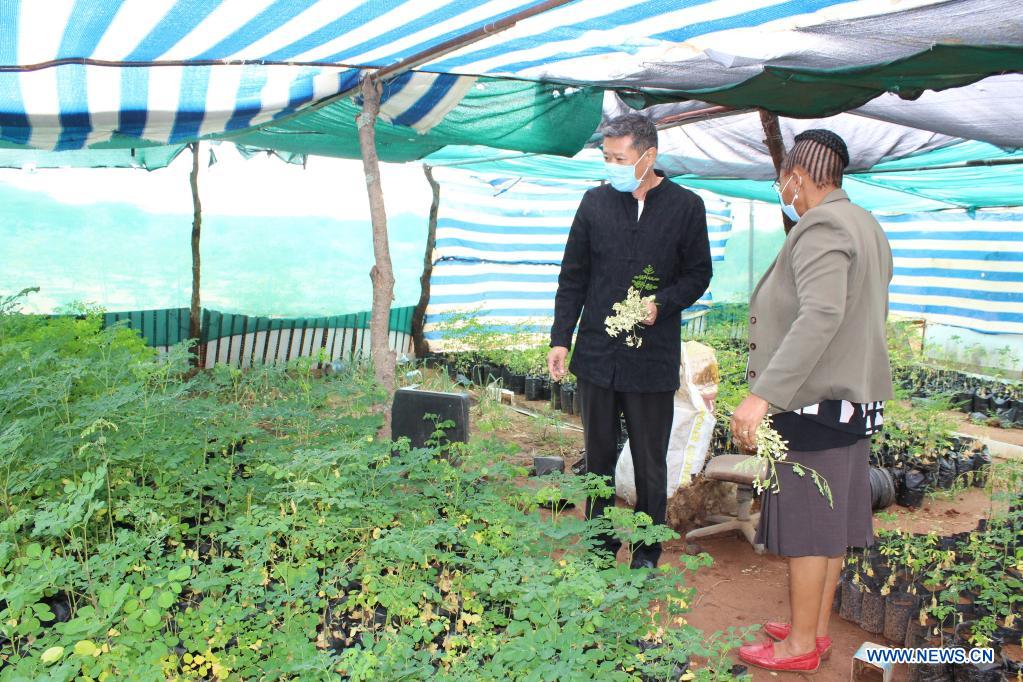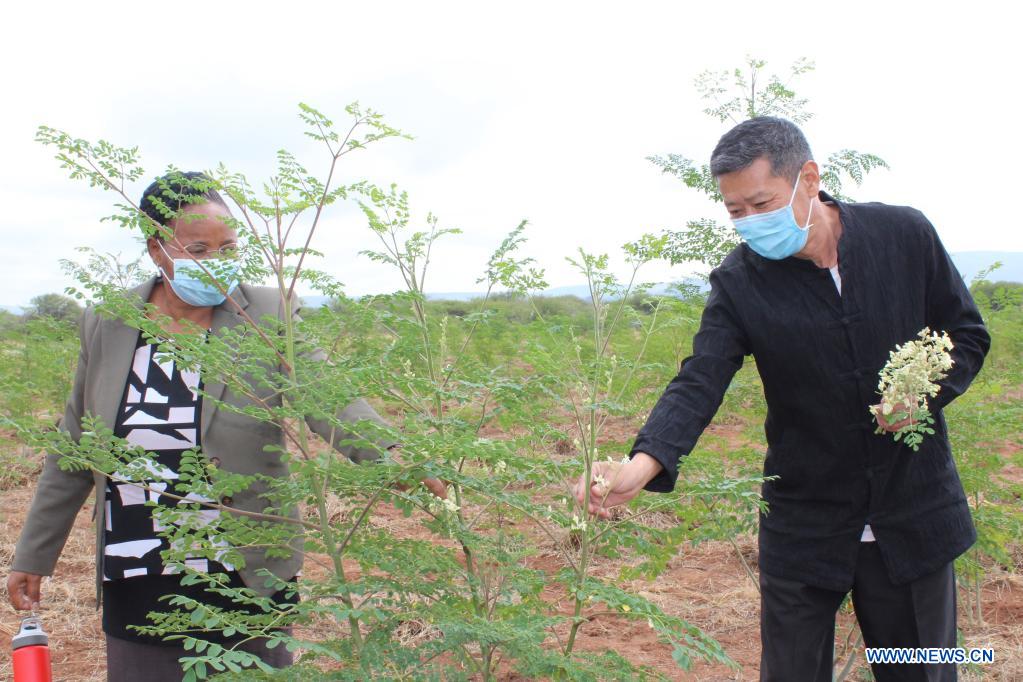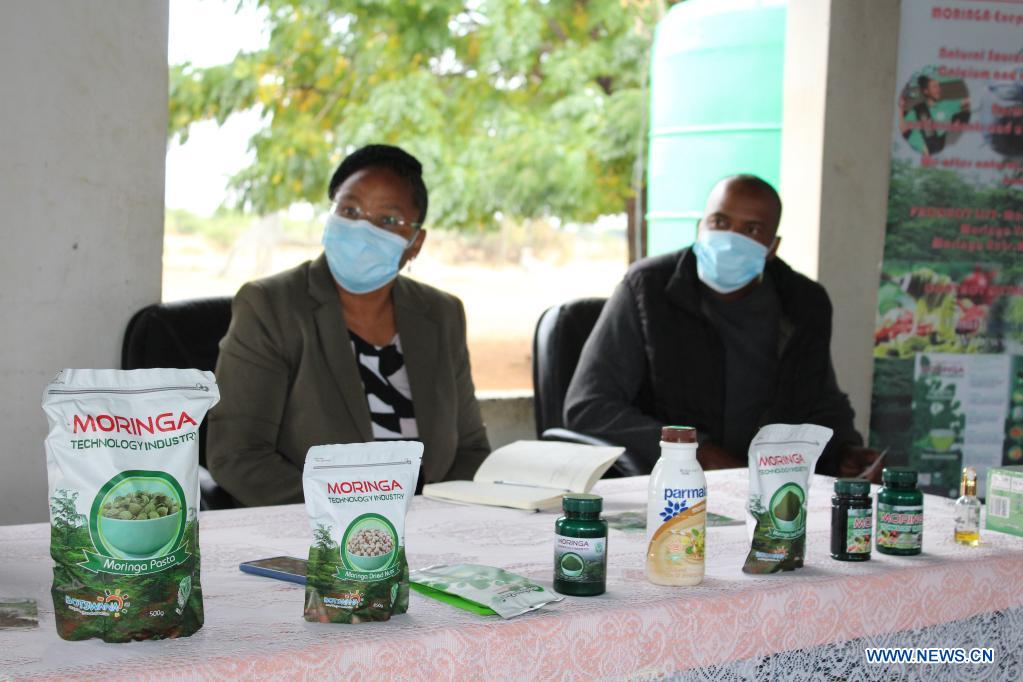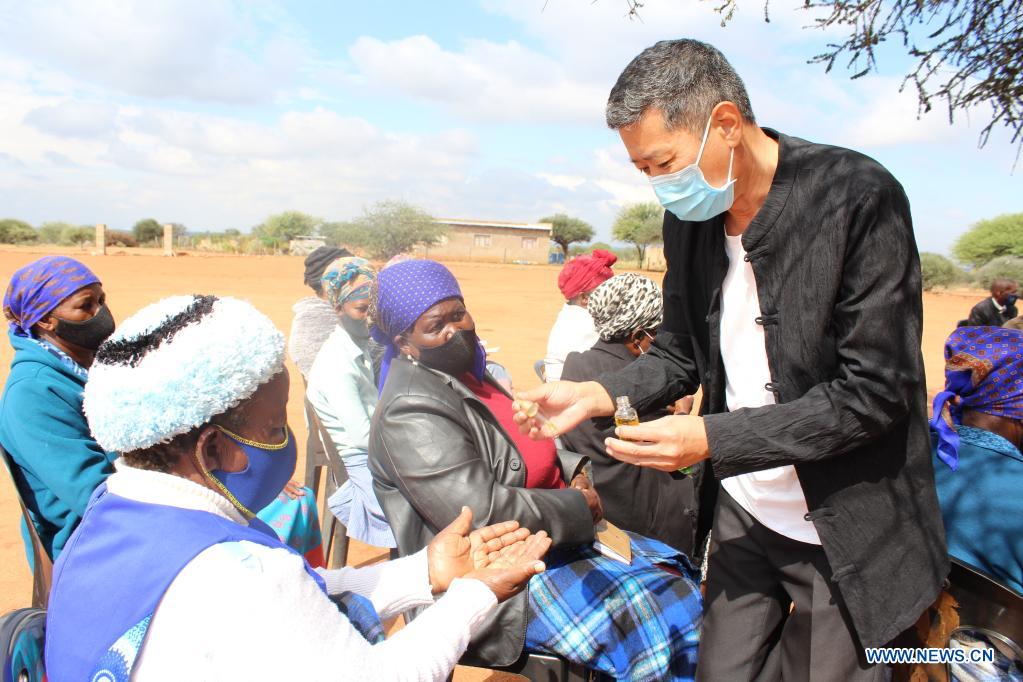Chinese farmer in Botswana promoting moringa farming
The morning was wet, cold, and misty. The light drizzle that had Hu Yan's windscreen wipers frantic promised a full day of rain, and yet, the seemingly unfavourable weather conditions on the last day of April did not deter farmers from congregating at the Mmakanke Village kgotla.
Addressing the gathering, Hu, the Chinese moringa farmer and manufacturer of moringa products delivered the good news he had already shared in two other villages within the Lentsweletau-Mmopane Constituency a week earlier.
While he spoke, the crowd was profoundly curious and attentive.
Diligently, he briefed them on the limited availability of moringa tree yields such as the leaves and pods that he needs to produce moringa oil, nuts, noodles, powder, tea, pills, pasta and instant porridge, a few products that he has already stocked up by various shops and pharmacies locally.
"I want farmers to start planting moringa trees so they can supply our manufacturing company," said Hu Yan, Co-Founder and Managing Director of Moringa Technology Industry, adding with the help of the Botswana Investment and Trade Center, he hopes the company can start exporting moringa products to Europe and the U.S. by August this year.
To meet the international demand, Hu needs at least 50 tonnes of moringa to start, hence he has been training local farmers on growing moringa trees and giving them seeds to get started.
His efforts to ensure that about 500,000 trees are planted within the Greater Gaborone Area have since attracted both the young and old from across the country.
"I have always been interested in farming and manufacturing in general, but I wanted a product that has not saturated the market and can give me good money. My research led me to Hu's moringa factory," said the 32-year-old Bonno Kgengwenyane who has a farm in Borolong Village and wants to start farming immediately.
In order to get started, he joined the growing moringa movement, and travelled to Mmakanke Village so he can consult with Hu.
With this opportunity, he believes his dreams can finally be realized.
While Kgengwenyane is looking into commencing, other farmers like Baganetsi Mmolawa, the Vice President of the Botswana Organic and Natural Foods Association, have already planted the trees and look forward to selling the harvest to the Moringa Technology Industry.
"What attracted me to this plant is that it is planted organically, and I was looking for moringa product manufacturers when I found Mr Hu," said Mmolawa, who has since become one of the leading voices of the Moringa Association of Botswana, which was officially registered on May 18, 2021.
Among other objectives, the Moringa association will promote the development of the moringa industry by engaging with the government and other relevant authorities and institutions on matters that affect the moringa industry, while facilitating the development, capacity and training of members and other stakeholders.
What pulls farmers to moringa is the fact that the plant requires little water to thrive and requires little security and attention, making it an ideal plant as the semi-arid Botswana has been battling recurring climate change incensed droughts, heat waves and rising temperatures for over a decade.
The droughts that worsened human and wildlife conflicts also resulted in livestock and crop losses, leaving traditional farmers destitute. Consequently, farmers abandoned or resorted to selling their farms.
"We know times are hard, but don't sell your land. You will not benefit anything in the long run. That kind of money does not last," said Nnaniki Makwinja, Assistant Minister of Basic Education and Member of Parliament for the Lentsweletau-Mmopane Constituency wherein Mmakanke Village is located.
Rather than selling, Makwinja encouraged the congregated farmers to consider growing moringa trees in their farms.
"Moringa is one of the three projects we have since chosen in the socio-economic development of our cluster of villages. It is a project you can undertake and benefit from quickly," she said.
"It has the potential to improve your lives greatly," she said, adding that farmers should consider moringa as their green "diamond."






